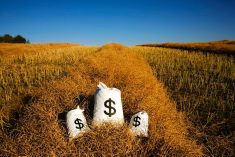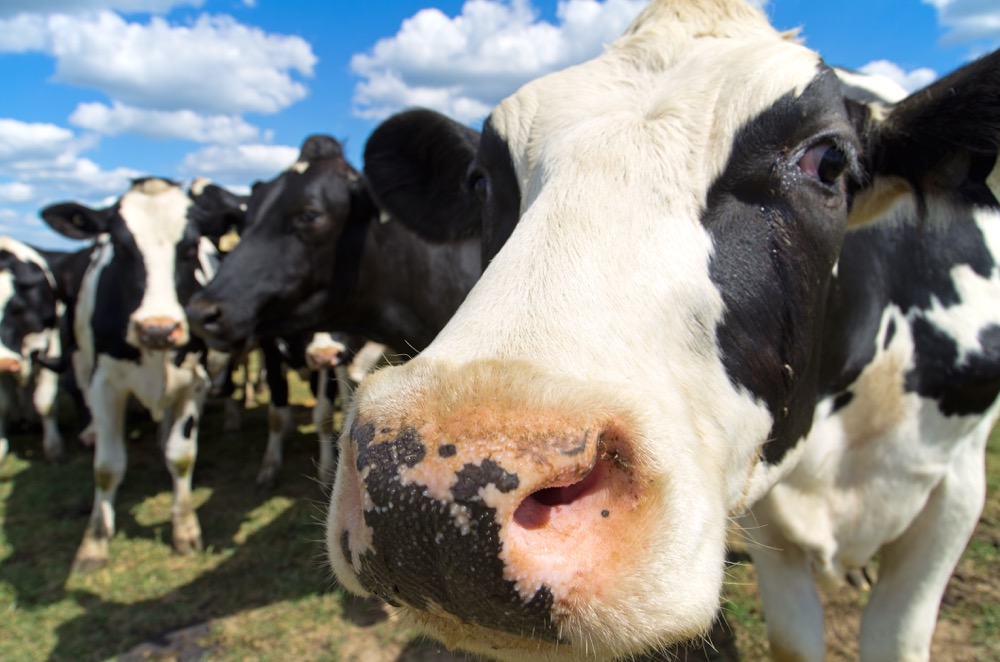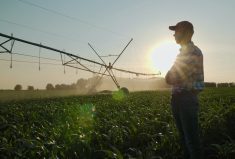The invitation came by text to attend a party at the neighbouring farm.
It was simply to showcase food production and to launch the farm to the community. COVID rules were followed, but that did not dampen the spirit. Folks loved the animals and the vegetable gardens, and enjoyed the vendors who sold natural products. Music filled the air and children played.
As I sat on my hay bale and simply soaked it all in, I was filled with peace and pride.
Peace for my soul was resting in the sun and I was surrounded by my small island family. Pride because I was proud to be a farmer and to support this young team.
Read Also

Deep cuts to ag research jeopardize Canada’s farming future
The huge cuts to ag research at Agriculture Canada are being widely panned by farm organizations, but there seems to be little hope of the government reversing its decision.
It took a bit of courage to launch a party after less than a year in business. And like many new farms, these owners had no previous farming experience.
Most of the folks who attended were young urban families looking for a connection to food. They came and stayed, and had a thirst for knowledge about farming.
The sign-up sheets for future farm products filled quickly and now the couple has an idea of their target market. They know who is buying, what volume to produce and what to put into the basket. This ‘ask first’ way of targeting production and marketing is similar to some European models.
The prepared meals and beverages were provided by carefully selected food trucks. One sported the most engaging and creative farm sign: “From seed to sandwich — homegrown to homemade — we are farmers! We grow and raise the vegetables, eggs and meat. We farm with soil, ecosystems and animals in mind.”
I got in line!
The food was delicious and during a chat with the owners, I asked them their story.
Like most young folks on Vancouver Island, they were not from farms. As participants in the Young Agrarians Land Matching Program, they had access to one acre of old pasture. On that now revitalized one acre they grow vegetables, herbs, chickens and pigs and sell their product through the food services they provide as well as on farm. I was impressed and noticed that they too would be having their farm party in a few weeks after only a year in business.
Both the host farm and the food vendor were holding public events a short time after starting out. They were open about the challenges (including 90 days without rain this summer) and were relaxed about mistakes. I saw in these young couples the drive and passion that built our country — one garden, one orchard, one acre, one flock and one small herd at a time.
There is something special about going to a small farm where young people from an urban background are embracing the unknown.
They tend to do extensive research and are social media savvy. They are part of the generation of co-conspirators who are open to sharing information and ideas and inviting others into their lives. They do not see the neighbouring farm as competition and recognize that all farms are important because they are part of complex natural systems.
And they have different employment models. The host farm always has someone helping out for short periods who is just as eager to learn about food as the farmers themselves. (I have talked to folks from all walks of life with a wide range of physical abilities who are ‘working on the farm’ for a while.)
There are many little lessons in this story.
- You do not have to come from a farm family to be a good farmer. If you want to try it, go ahead. Starting small is a big thing and most certainly more manageable. Ask questions and ask for help.
- Encourage those around you who dream to farm, regardless of their apparent ability. Kindly mentor them. If you are a young food producer, seek a mentor.
- As a farmer, see yourself as part of the solution and invite the public to fully appreciate what you do by focusing on the outcome. Be transparent and authentic.
- You don’t have to own land to farm. Start somewhere. Start simply.
- Consider adding value to your farm through events or food preparation, value adding or processing, historic or nature walks or tourism. What seems ordinary to the farmer is fascinating for the visitor.
- Look at marketing models from other parts of the world and employ them. Remove ‘price-taker’ from your vocabulary. Regardless of the farm’s size, dive into market research and try different ideas.
- Flexible employment models are more attractive to the younger generation. Strive to find ways to engage talent that is non-traditional.
- Have fun.
I would add that business knowledge and a good accountant are also key in a startup. But it is the ecology — that relationship between the people, land and animals — that captures the possible. Even if it is one acre at a time.
















